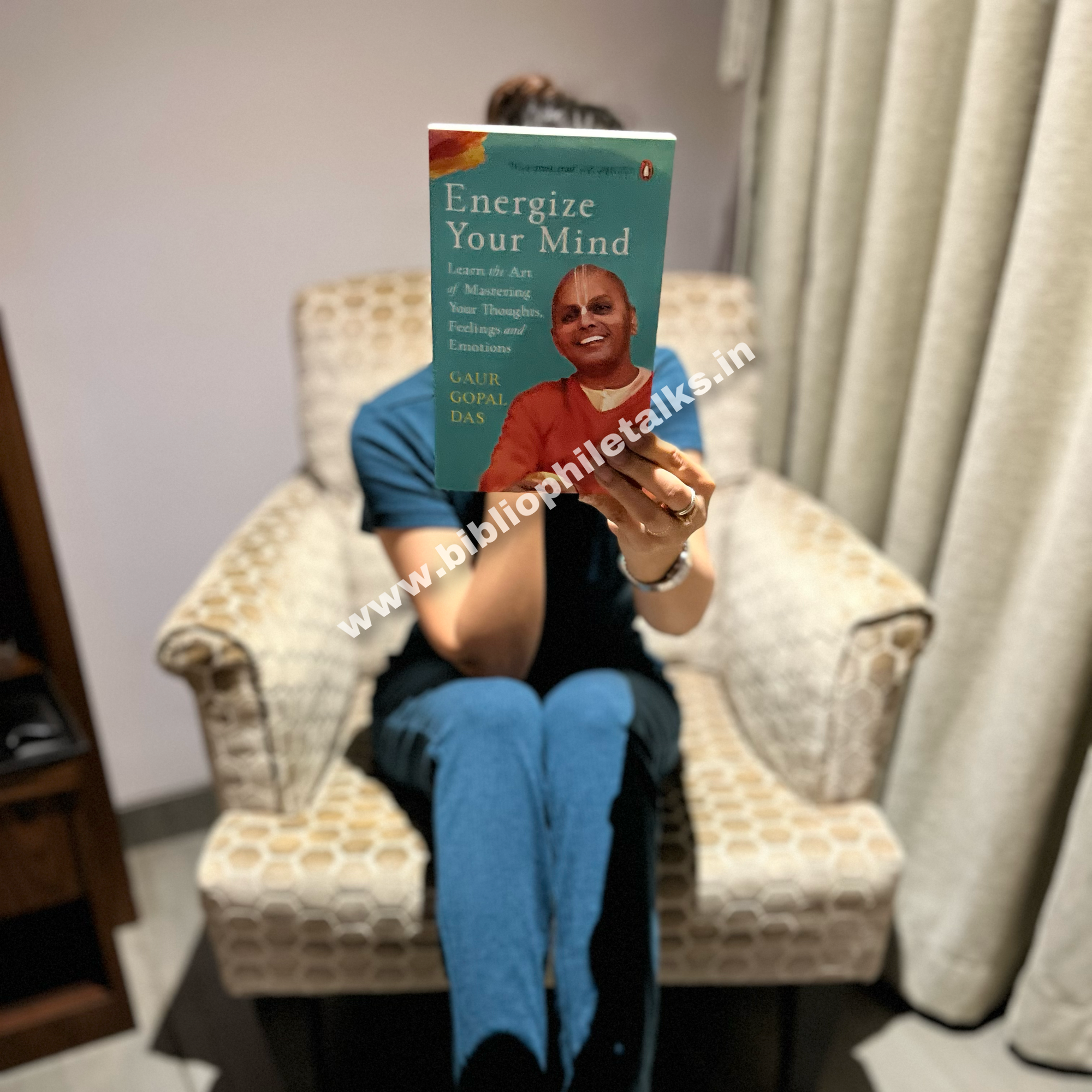ENERGIZE YOUR MIND

𝐄𝐧𝐞𝐫𝐠𝐢𝐳𝐞 𝐘𝐨𝐮𝐫 𝐌𝐢𝐧𝐝
𝐁𝐲 𝐆𝐚𝐮𝐫 𝐆𝐨𝐩𝐚𝐥 𝐃𝐚𝐬
𝐏𝐮𝐛𝐥𝐢𝐬𝐡𝐞𝐫: 𝐏𝐞𝐧𝐠𝐮𝐢𝐧 𝐈𝐧𝐝𝐢𝐚
𝐏𝐚𝐩𝐞𝐫𝐛𝐚𝐜𝐤: 𝟑𝟎𝟒 𝐏𝐚𝐠𝐞𝐬
𝐏𝐮𝐛𝐥𝐢𝐬𝐡𝐞𝐝 : 𝟑𝟎𝐭𝐡 𝐉𝐮𝐧𝐞 𝟐𝟎𝟐𝟑
𝐆𝐞𝐧𝐫𝐞: 𝐍𝐨𝐧 𝐅𝐢𝐜𝐭𝐢𝐨𝐧
𝐈𝐧𝐝𝐢𝐚𝐧 𝐖𝐫𝐢𝐭𝐢𝐧𝐠
𝐑𝐞𝐚𝐝𝐢𝐧𝐠 𝐘𝐞𝐚𝐫: 𝟐𝟎𝟐𝟑
The book "Energize Your Mind" by Gaur Gopal teaches readers how to manage their thoughts, emotions, and feelings so that they can attain enhanced well-being. The book is structured into four distinct sections:
The Mind: Within this segment, the intricacies of the mind and its functioning are explored. Das delves into how our thoughts, emotions, and feelings are all under the influence of our minds, and he imparts wisdom on how to harness this control for personal betterment.
The Heart: This division underscores the significance of emotions in our existence. Das advocates for understanding and embracing emotions instead of suppressing them. He furnishes readers with exercises and meditative techniques to foster a healthy connection with their emotions.
The Soul: Venturing into the spiritual realm of the mind, this section contends that our minds are intertwined with a greater cosmic essence. Das furnishes guidance on aligning with our souls, leading to a life of enriched significance.
The Way: Practical counsel on the application of the book's principles in our daily lives is provided in this section. Das extends advice on meditation, mindfulness, and other practices conducive to mastering our minds and cultivating more gratifying lives.
"Energize Your Mind" proves to be an eloquent and perceptive work, presenting a treasure trove of pragmatic guidance for enhancing mental health and overall well-being. Mr. Das's prose is both lucid and captivating, enriched with personal narratives and anecdotes that serve to illuminate his points. The book also abounds with exercises and meditations, facilitating the translation of its principles into tangible practices.
In contrast to his initial work, "Life's Amazing Secrets," "Energize Your Mind" takes on the form of a memoir, in which the author divulges the entirety of his life journey, detailing how he forged greater mental resilience following each emotionally trying event, notably the passing of his father.
Although the author's writing style is undoubtedly lucid and concise, the book seems to lack profoundness, falling short of presenting genuinely thought-provoking or innovative concepts. Moreover, the pacing comes across as sluggish, and the anecdotes and instances tend to veer towards clichés, resulting in a less captivating experience. This book is quite commendable, and I'd like to suggest it, especially to those who haven't had the chance to explore books related to this topic yet. However, if you've already covered a substantial number of books on this subject, you might consider bypassing this one.
My Rating:
3/5
NOTE: In this blog, the CONTENT and PICTURES are owned by Samayra Singh, and cannot be used or distributed without permission. Strict legal action will be taken against any infringement.